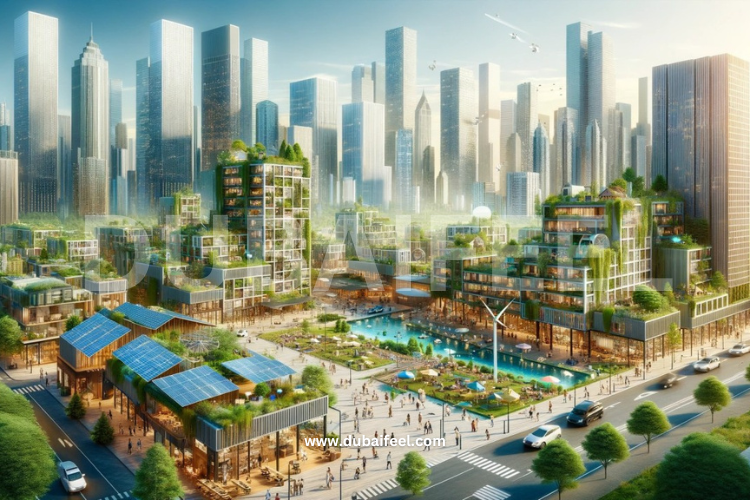Dubai’s cultural heritage is increasingly captivating tourists for several compelling reasons. Its rich tapestry of historic sites, vibrant traditions, and unique blend of old and new offers an intriguing contrast to its modern, luxury image. Attractions like the historic Al Fahidi Fort and the bustling souks provide an authentic glimpse into the city’s past, drawing visitors eager for cultural enrichment. However, this burgeoning interest also brings challenges, such as the risk of cultural commercialization and potential loss of authenticity. Balancing preservation with tourism’s demands is crucial as Dubai’s cultural allure continues to shine.
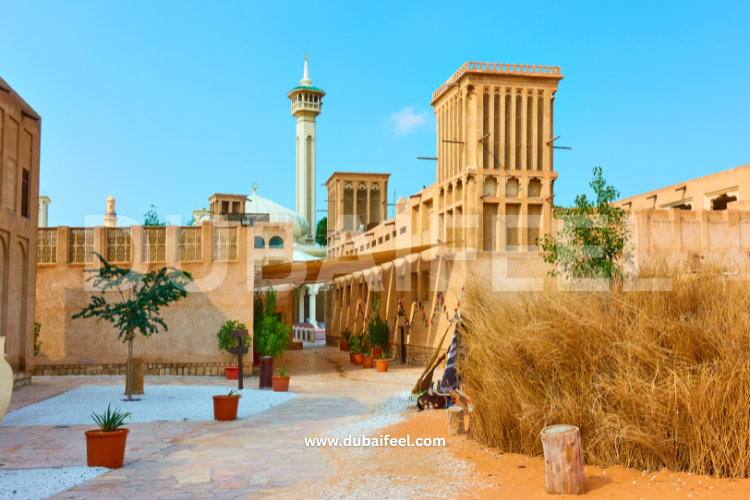
Dubai is known for its deep-rooted heritage. Beyond the glitz of towering skyscrapers and lavish malls, the city offers a profound artistic experience that attracts tourists from around the globe. In recent years, tourism in Dubai has flourished as the city showcases its rich history, traditional values, and unique blend of old and new.
In this blog, we explore the various facets of Dubai’s cultural appeal, unraveling why this dynamic city has become a significant destination for those seeking authentic experiences. Dubai’s dedication to preserving its heritage offers tourists a rich blend of history and modernity, making it a compelling destination for artistic exploration, education, and immersive experiences.
Dubai’s commitment to preserving its cultural heritage is evident in the Al Fahidi Historical Neighborhood and several other restored sites, contributing to a broader understanding of its history. This dedication to preserving historical landmarks and traditions amidst rapid modernization highlights the city’s effort to maintain a connection between its past and its present. These efforts nod to Dubai’s rich history and serve as educational hubs, attracting millions of visitors annually.
Al Fahidi Historical Neighborhood: A Cultural Journey Through Time
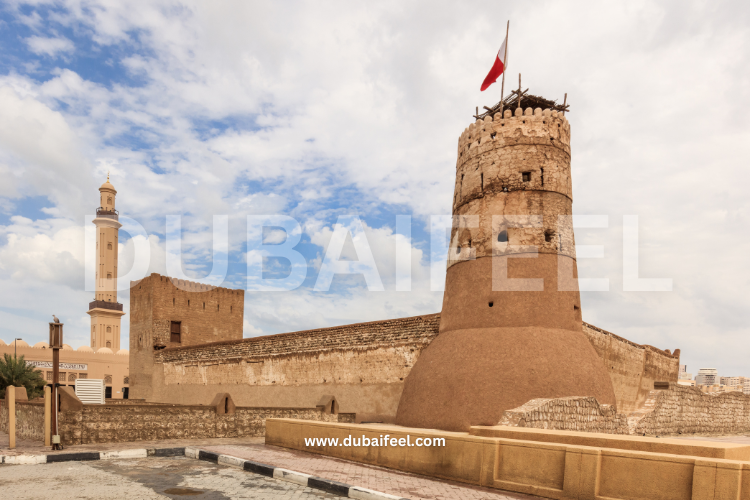
The Al Fahidi Historical Neighborhood is a testament to Dubai’s preservation efforts. Built in the late 19th century, the neighborhood was initially home to wealthy Persian merchants who came to Dubai due to the city’s thriving pearl trade. The narrow alleyways, traditional wind towers (known as Barjeel), and sand-colored buildings made from coral and gypsum provide an authentic glimpse of life in Dubai before the oil boom. Today, the neighborhood has transformed into a heritage epicenter.
The SMCCU is located within Al Fahidi and is pivotal in educating tourists about Emirati culture, customs, and traditions. The center offers guided tours through the narrow streets of Al Fahidi, allowing visitors to discover the history and significance of each building. The SMCCU also hosts meals, where tourists can enjoy traditional Emirati food while learning about the customs and etiquette of the UAE.
This immersion experience uniquely bridges the gap between tourists and the local community, fostering a deeper understanding of Dubai’s past and present. Al Fahidi has several museums and galleries that further enhance the experience. The Coin Museum, located within the neighborhood, displays over 470 rare coins from different periods in the region’s history, offering insights into ancient trading practices and the evolution of commerce in the Gulf.
The Museum of the Poet Al Oqaili, another gem in Al Fahidi, provides an intimate look at the life and works of Mubarak Al Oqaili, a revered Emirati poet. These museums not only showcase the history and culture of Dubai but also highlight the importance of art and literature in Emirati society.
1. Dubai Museum: A Cultural Window into the Past
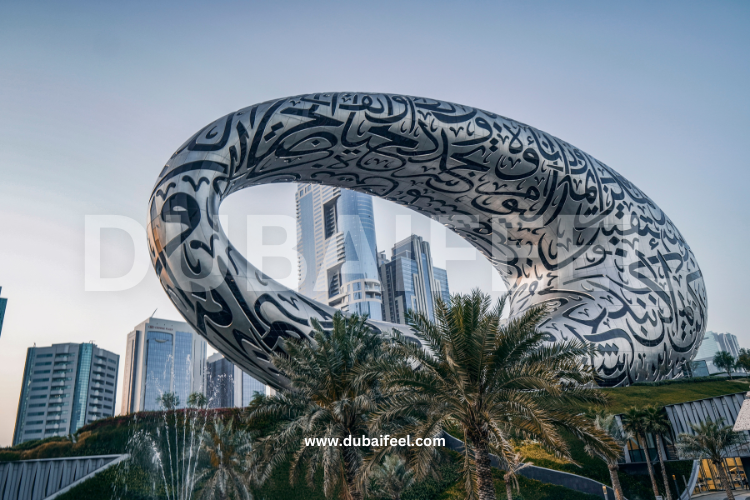
At the heart of Dubai’s efforts to preserve its heritage is the Dubai Museum, located within the Al Fahidi Fort. The fort served as a defensive stronghold against invading forces and later as the ruling family’s residence. Today, it houses the Dubai Museum, which takes visitors through the city’s transformation from a small fishing village to a bustling global metropolis.
The museum’s exhibits offer a comprehensive look at Dubai’s history, with detailed displays of the Bedouin lifestyle, the significance of pearl diving, and the role of trade in shaping the city’s economy. One of the museum’s highlights is the life-sized dioramas that show settings from daily life in pre-oil Dubai. These dioramas offer a fascinating glimpse into fishermen’s, merchants’, and artisans’ lives, starkly contrasting the high-tech industries that dominate Dubai today. The Dubai Museum also delves into the city’s ancient trading practices, which played a vital role in its growth as a regional hub.
The Spice Souk and Gold Souk still operate today and are remnants of Dubai’s early trading days. The museum explores the historical significance of these souks, emphasizing how they served as centers of commerce and exchange. Visitors can learn about the goods traded, including spices, textiles, and precious metals, and how these commodities helped Dubai thrive in the harsh desert environment.
The Dubai Museum’s section on pearl diving is another essential aspect of the city’s history. The museum’s exhibits detail the arduous process of pearl diving, showcasing the equipment used by divers and the dangers they faced while searching for valuable gems. This part of the museum serves as a poignant reminder of the city’s humble beginnings and the resilience of its people in the face of adversity.
2. The Broader Impact of Cultural Preservation in Dubai
Preserving heritage sites like Al Fahidi and the Dubai Museum reflect a broader trend in Dubai to honor its heritage while embracing the future. Dubai has rapidly transformed into one of the most futuristic cities in the world, known for its iconic skyscrapers, luxury shopping malls, and state-of-the-art infrastructure. However, amidst this rapid modernization, the city has consciously tried to preserve its heritage identity.
This balance between tradition and modernity is one of the key reasons why heritage tourism in Dubai has seen significant growth. Visitors to the city are to its glitzy attractions and history and heritage. By preserving and restoring historical landmarks, Dubai allows you to step back in time and experience the city’s past while enjoying its modern amenities. Preserving historical sites also plays a crucial role in educating the younger generation about Dubai’s history.
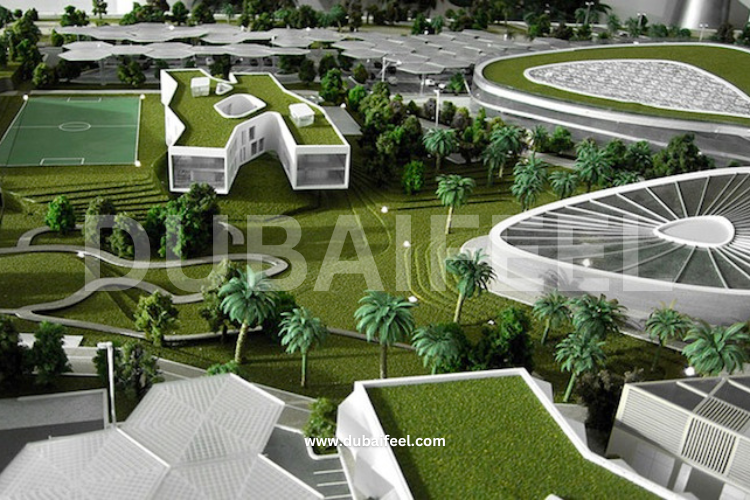
As the city continues to grow and attract people from all over the world, there is a risk that its identity could become diluted. However, by maintaining and promoting sites like Al Fahidi and the Dubai Museum, the government ensures that future generations of Emiratis and expatriates alike can connect with the city’s roots and appreciate its journey.
Moreover, preserving these cultural landmarks has significant economic benefits. Cultural tourism is a growing industry, and Dubai’s efforts to promote its heritage have helped diversify its tourism sector. By offering a unique blend of historical and modern attractions, the city appeals to a broader range of tourists, including those interested in cultural experiences.
It has led to increased investment in developing new museums, galleries, and cultural centers, further enhancing Dubai’s appeal as a historical destination. While the Al Fahidi Historical Neighborhood and the Dubai Museum are among the most prominent examples of Dubai’s historical preservation efforts, they are not the only ones. The city has undertaken several other initiatives to protect and promote its heritage.
For example, restoring the Shindagha Heritage District, located along Dubai Creek, is another significant project to preserve the city’s historical landmarks. The district is home to several critical historical sites, including the Sheikh Saeed Al Maktoum House, the former residence of Dubai’s ruling family. The house, converted into a museum, offers a fascinating look at the daily life of Dubai’s rulers and the city’s early development.
Currently under development, the Shindagha Museum will further enhance the district’s heritage offerings, providing a comprehensive look at Dubai’s maritime history, trade, and traditions.
Also, Dubai has tried preserving its natural heritage by protecting areas like the Dubai Desert Conservation Reserve. While not a historical site in the traditional sense, the reserve plays a vital role in preserving the natural environment that has shaped the lives and traditions of the Bedouin people for centuries. Visitors to the reserve can experience the desert landscape that has been an integral part of Dubai’s history and culture, learning about traditional Bedouin practices such as falconry and camel riding.
Preserving Dubai’s historical sites is critical to the city’s rise as a significant destination for heritage tourism. The city has protected its heritage by restoring historical landmarks like the Al Fahidi Historical Neighborhood and the Dubai Museum, which have created new opportunities for tourism, education, and economic growth. These efforts ensure that Dubai’s cultural identity remains intact, even as the city evolves and grows. This preservation offers tourists a unique opportunity to study the rich past and practices that have shaped Dubai, making it a must-visit goal for those desiring more in-depth knowledge of the city’s past.
3. Authentic Cultural Experiences
Dubai offers a range of authentic cultural experiences that allow tourists to engage deeply with Emirati traditions. One of the most popular cultural attractions is the Jumeirah Mosque, an architectural marvel and a center for promoting understanding of Islamic culture. The mosque is open to non-Muslim visitors, and guided tours provide insight into Islamic practices, beliefs, and the cultural significance of the mosque in daily life.
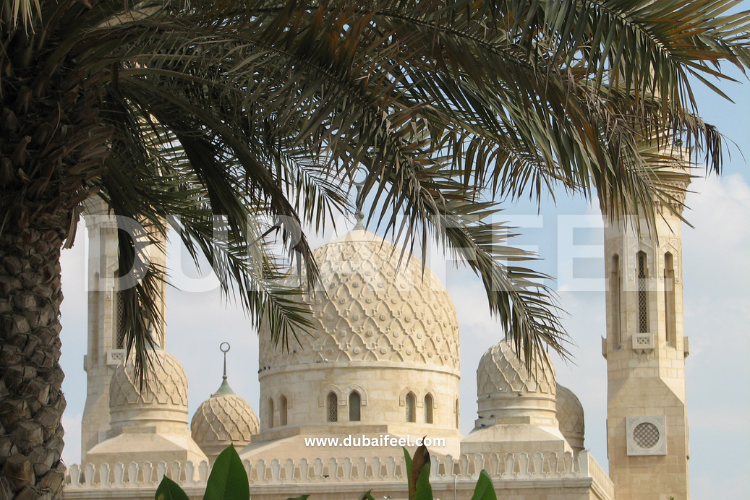
Visiting the city’s souks is necessary for those interested in Dubai’s traditional trade and commerce. The Gold Souk, Spice Souk, and Textile Souk are bustling markets that have retained much of their old-world charm. These souks are integral to Dubai’s cultural fabric and offer a sensory experience where tourists can meet with regional vendors and learn about the past and significance of these ancient marketplaces.
Additionally, tourists are mainly interested in the cultural experience of traditional Dhow Cruises along Dubai Creek. The creek has been the lifeblood of Dubai for centuries, and cruising on a traditional wooden dhow boat provides a serene and historic backdrop to the city’s past. These cruises often include cultural performances and traditional Emirati food, making them a rich, immersive experience.
4. Cultural Festivals and Events in Dubai
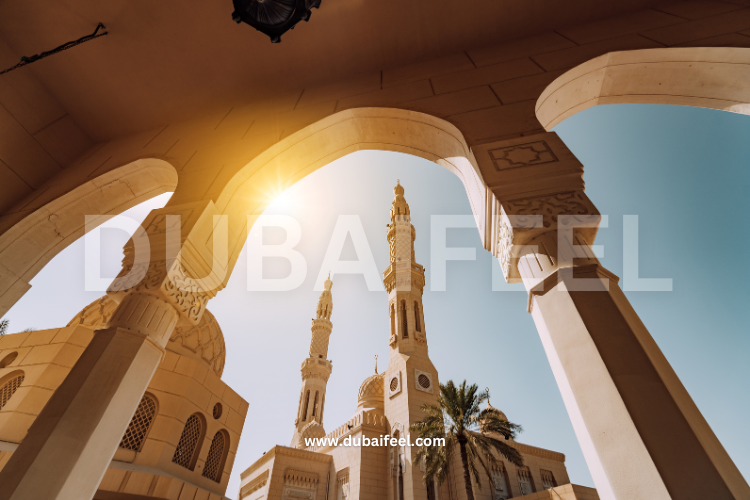
Dubai’s calendar is filled with festivals and events celebrating local and global cultures, making it a hub for cultural exchange. While primarily focused on retail, the Dubai Shopping Festival (DSF) also offers numerous cultural activities that showcase Emirati traditions.
From classic dance concerts to art exhibitions, the DSF gives visitors a taste of Dubai’s cultural diversity. Moreover, the Dubai International Film Festival (DIFF) attracts filmmakers and cinema enthusiasts worldwide, promoting cultural exchange through the lens of global cinema. The festival has become a significant platform for Arab filmmakers, showcasing stories and narratives that reflect the region’s cultural richness.
Such events are entertaining and educational, allowing visitors to gain a more profound knowledge of the cultural landscape of Dubai and the broader Middle East. Another major cultural event is Heritage Week, celebrated annually and features traditional Emirati practices such as falconry, camel racing, and pearl diving demonstrations.
These events keep Dubai’s cultural heritage alive while enlightening residents and tourists about the importance of these traditions. The festival also includes workshops on Emirati crafts such as pottery, weaving, and henna art, providing hands-on experiences that make cultural learning interactive and enjoyable.
5. The Sheikh Mohammed Centre for Cultural Understanding
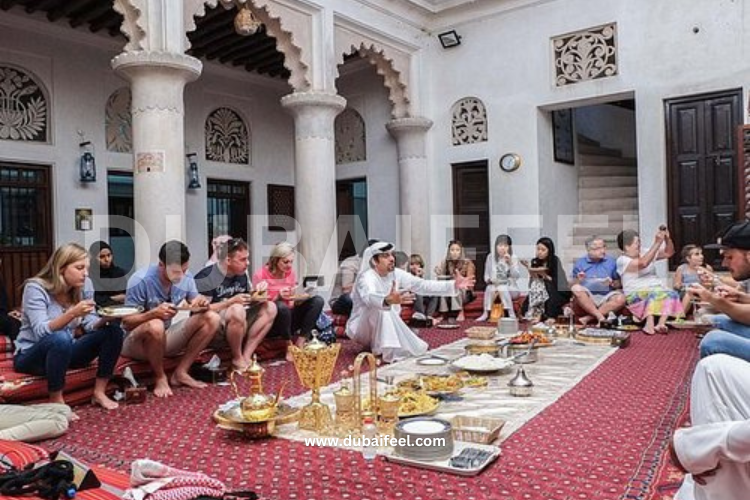
This Cultural Understanding Centre is one of the most prominent institutions promoting cultural understanding. This center is crucial in educating tourists and residents about Emirati customs, traditions, and religion. The center’s motto, “Open Doors, Open Minds,” reflects its mission to bridge the gap between different cultures through open dialogue and educational programs.
The SMCCU offers a range of activities, including traditional Emirati meals (known as cultural breakfasts and lunches), guided tours of historic neighborhoods, and interactive question-and-answer sessions where visitors are encouraged to ask about all aspects of Emirati life. These programs are top-rated among tourists because they provide an authentic and respectful space to learn about Dubai’s cultural heritage in a relaxed setting. The center’s focus on inclusivity and openness has made it one of the UAE’s most respected cultural institutions.
Also read 7 Reasons Why Luxury Brands Are Thriving in Dubai’s Shopping Districts: The Pros and Cons.
6. Architectural Landmarks and Their Cultural Significance
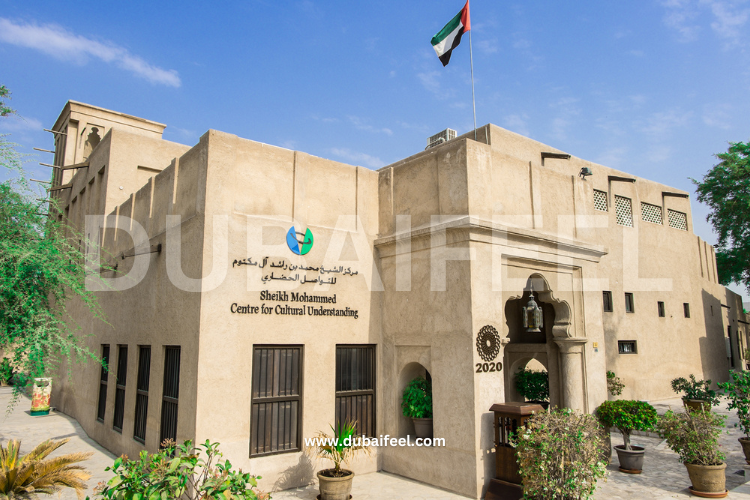
While Dubai is globally renowned for its modern architectural wonders like the Burj Khalifa and Palm Jumeirah, they also hold significant cultural meanings. The design of these landmarks often draws inspiration from traditional Arabic motifs and architecture.
For instance, the Burj Al Arab, one of the most iconic hotels in the world, is designed to resemble the sail of a traditional dhow boat, symbolizing Dubai’s maritime heritage. Similarly, while a modern structure, the Dubai Opera House is a beacon of the city’s commitment to promoting the arts and cultural performances.
Hosting world-class opera, ballet, and theater performances, the Dubai Opera brings global cultural experiences to the UAE, allowing visitors to engage with art forms worldwide. Integrating these modern landmarks with traditional cultural themes reflects Dubai’s ability to honor its past while embracing the future.
7. Culinary Experiences: A Taste of Culture
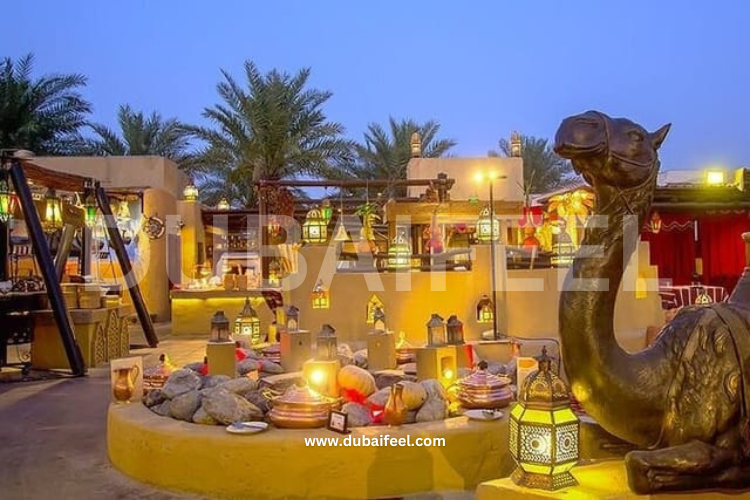
Dubai’s food scene is another aspect of its cultural appeal. The city offers diverse culinary experiences, from traditional Emirati dishes to international cuisines, reflecting its status as a global melting pot. For tourists, sampling local food is a gateway to understanding the region’s cultural identity.
Dishes like Al Harees, Machboos, and Luqaimat are popular among those wanting to explore the traditional flavors of Dubai. Dubai’s culinary festivals, such as the Dubai Food Festival, also celebrate the city’s cultural diversity, bringing together food lovers worldwide. These festivals highlight the variety of cuisines available in Dubai and emphasize the importance of food in fostering cultural connections.
Additionally, cultural dining experiences, such as Bedouin-style meals in the desert, give tourists a deeper appreciation of Dubai’s heritage. These experiences, often set against traditional music and dance backdrop, offer a sensory journey into the heart of Emirati cultural traditions.
8. The Rise of Cultural Tourism in Dubai
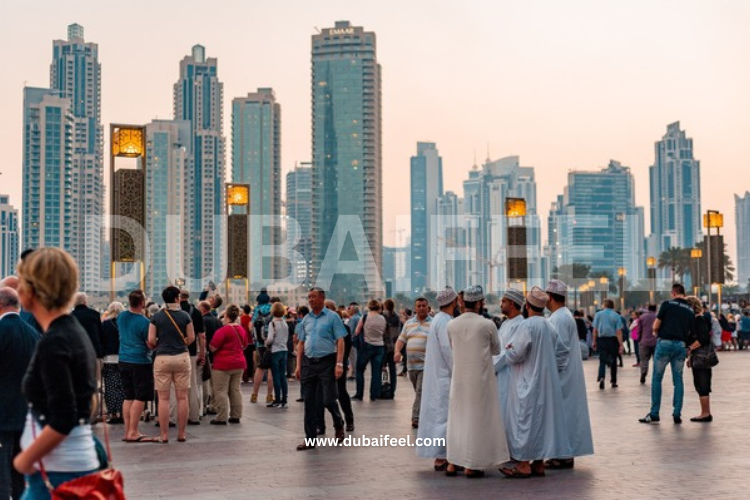
The rise of cultural tourism in Dubai can lead to a growing global trend in which travelers seek more meaningful and authentic experiences. As tourists become increasingly interested in connecting with local traditions, Dubai has positioned itself as a goal that offers a remarkable combination of tradition and modernity.
Government initiatives promoting the city’s cultural heritage have further fueled this trend. Dubai’s commitment to cultural preservation is evident in projects like the Dubai Culture & Arts Authority, which is pivotal in promoting the city’s arts and cultural activities. The authority has launched initiatives to foster cultural creativity, including public art installations, exhibitions, and workshops. These efforts enhance the city’s cultural landscape and attract tourists keen to explore Dubai’s artistic and cultural side.
Moreover, cultural tourism aligns with the UAE’s broader vision of becoming a global hub for art and culture. The development of the Louvre Abu Dhabi and the upcoming Guggenheim Museum further solidifies the country’s dedication to establishing itself as a critical player in the global cultural arena.
9. The Role of Emirati Traditions in Dubai’s Cultural Appeal
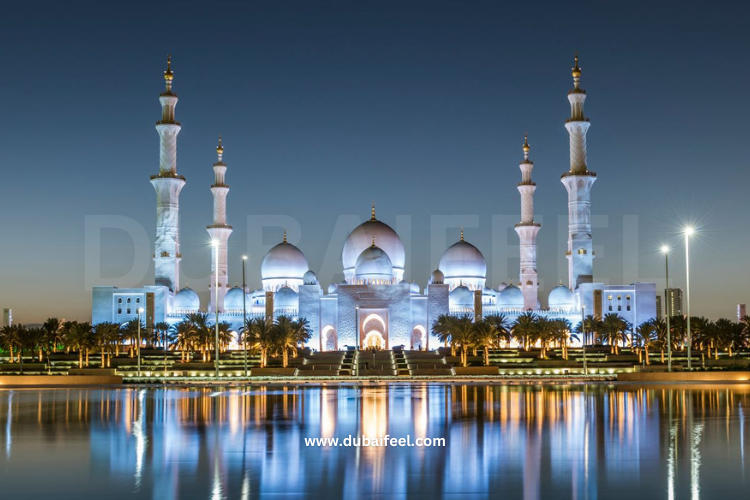
Emirati traditions are at the heart of Dubai’s cultural appeal, which continues to play a significant role in shaping the city’s identity. Despite the influx of expatriates and the city’s rapid modernization, Emirati customs and values remain deeply ingrained in daily life. Tourists are often fascinated by the juxtaposition of old and new, as modern city life coexists with traditional practices.
For instance, traditional hospitality, where guests are welcomed into homes and offered coffee and dates, is a critical element of Emirati cultural values. Tourists can experience this hospitality firsthand through cultural programs and guided tours that introduce them to these customs.
Moreover, traditional clothing such as the Abaya and Kandura are still widely worn in Dubai, reflecting the importance of preserving cultural identity. For many tourists, seeing locals dressed in traditional attire reminds them that, despite modernity, Dubai continues to honor its artistic roots.
Also, read Ways to Enjoy a Luxurious Dubai Experience Without Breaking the Bank.
